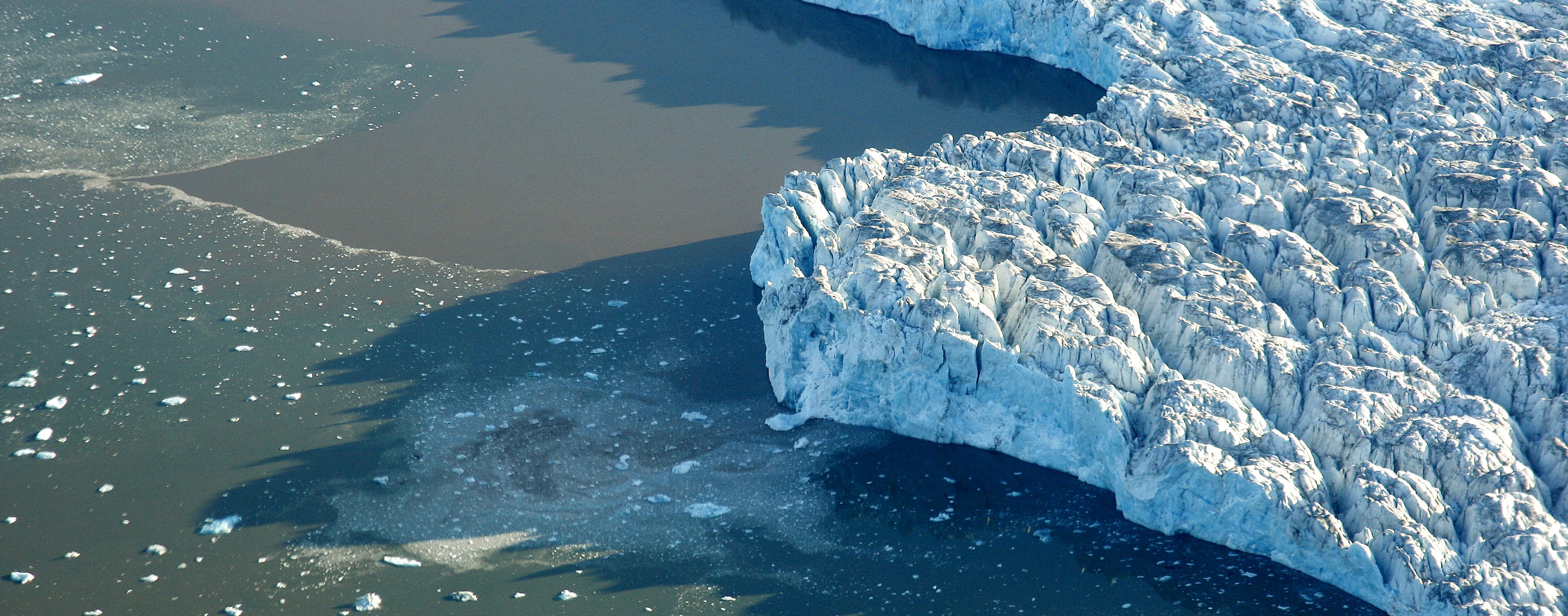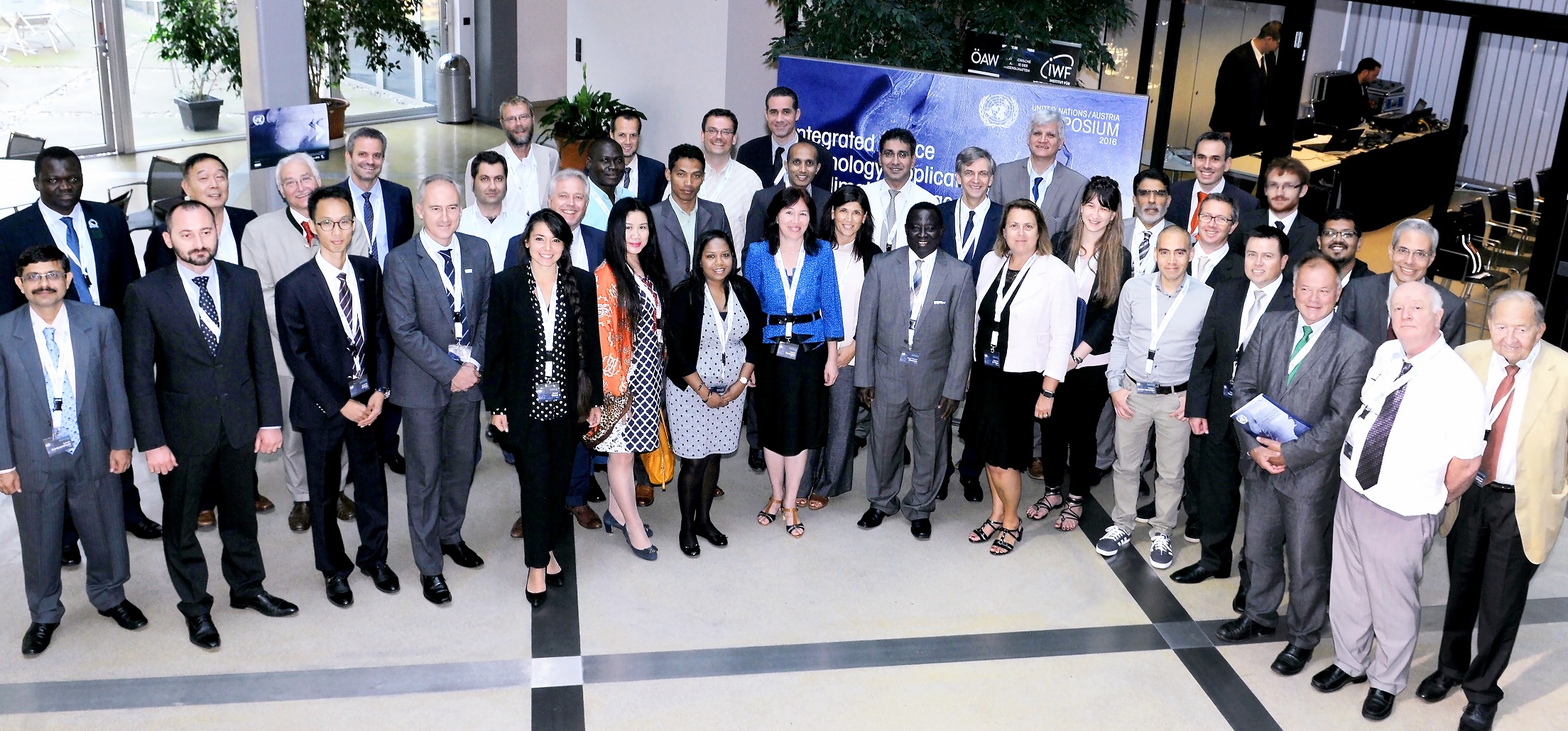
United Nations / Austria Symposium on
"Integrated Space Technology Applications for Climate Change"
Graz, Austria, 12-14 September 2016
Organized jointly by the United Nations Office for Outer Space Affairs and the Government of Austria
With the support of the European Space Agency
Updates:
- Registration for participants seeking funding is closed (29th May 2016)
- Registration for self-funded participants is closed (30 June 2016)
Background
In recent years, climate change has been recognized as a process which may deter sustainable development throughout the world. As a global phenomenon, climate change poses a threat to the economic, social, and environmental dimensions of sustainable development. In the context of peaceful uses of outer space, governments reiterated the need to protect the Earth's environment, and to promote international cooperation on the use of satellite applications for such topics as climate change. Satellites offer a unique point of view to observe climate change-related variables and features at the global level such as sea-level rise, deforestation trends or carbon emissions; and to measure on a permanent basis other parameters which may be too difficult or costly to observe from the ground such as changes in polar ice-caps and glaciers, and social trends such as increasing exposition of vulnerable communities to phenomena related to climate change.
This symposium forms part of the United Nations/Austria/European Space Agency Series of Symposiums.
Symposium Objectives
The objectives of the UN/Austria Symposium are:
- To discuss ways in which countries affected by climate change, especially developing countries, can make better use of space applications to assess vulnerability to climate change and potential losses and damages;
- To become aware of recent advances in the use of integrated space technology applications in the context of mitigation and adaption to climate change;
- To improve synergies among space agencies and organizations targeting efforts on climate change;
- To strengthen international and regional cooperation in this area;
- To raise awareness on the recent advances in space-related technologies, services and information resources which can be used to assess the impacts of climate change and the effects of measures implemented to reduce such impacts.
The discussions to be conducted during various sessions will be linked to the recently launched Sustainable Development Goals (SDGs). Specifically, they will make reference to Goal 13 of the SDGs that addresses the need to take urgent action to combat climate change and its impacts, including through the strengthening of the resilience and adaptive capacity of communities to climate-related hazards. The expected outcome is the identification of ways in which space-based technology can be used to generate relevant information for an effective climate change-related planning and management in developing countries.
Final Programme and Presentations

Keynote presentations
- Villagrán, Space Applications Section, UNOOSA, UNOOSA's efforts in climate change
- Doherty, Head EO Services and Exploitation Division, ESA, Space and Climate
Plenary Session 1: Remote Sensing and Climate Change
- Petja, Water Research Commission, South Africa, Characterizing ecosystem response to changing climate using earth observation technology
- Moreira, DLR, Tandem-L: A Highly Innovative Radar Satellite Mission for Climate and Environmental Monitoring
- Tang, South China Sea Institute of Oceanology, Chinese Academy of Science, Remote Sensing of effects of climate change on marine and coastal ecosystems
Plenary Session 2: Space Applications and Climate Change
- Radunsky, Umweltbundesamt, Austria, The work of the Adaptation Committee on adaptation planning
- Doherty, ESA, Copernicus - a game changer in Earth Observation
Discussion Session
Plenary Session 3: Climate Change and the Environment
- Obregón, GEO, The cross-cutting role of climate in GEO's next decade
- Semakova, Uzbekistan Academy of Sciences, Applications of the integrated remote sensing technologies to monitor the state of glaciers
- Kiemle, DLR, Tracking Greenhouse Gas Concentrations from Space: The French-German Methane Mission MERLIN
- Theilen-Willige, TU Berlin, Impact of Climate Change on Natural Hazards and on Landscape Development in the Black Hills and Adjacent Areas, South Dakota, Montana and Wyoming, USA, using Remote Sensing and GIS-Methods
- Rana, Asian Institute of Technology, Thailand, Risk and Vulnerability Assessment of Flood Prone Urban Areas of Pakistan
- Solomos, National Observatory of Athens, IAASARS, The importance of desert dust for weather and climate in the Mediterranean
- Ali, SUPARCO, Characterization of land cover composition and its changes using hyper-temporal remote sensing
Plenary Session 4: Climate Change and Livelihoods
- Bandyopadhyay, ISRO, Space Technology Applications for Monitoring Climate Change Impacts on Water Resources
- Ohemeng, Irrigation Development Authority, Ghana, Integrated Flood water Harvesting for Multipurpose Use in 3 Districts of the Upper East Region of Ghana
- Hanjagi, Bangalore University, Landuse Change and Transformation Study of Bangalore Metropolitan Region and Plan for Sustainable Development
Panel: Climate change - From science to policy to application
- Prettenthaler, JOANNEUM RESEARCH, Austria
- Bandyopadhyay, ISRO , India
- Muniz Alves, INPE, Brazil
- Ohemeng, Irrigation Development Authority, Ghana
- Agoro, Federal Ministry of Science and Technology, Nigeria
Plenary Session 5: Capacity building and Information Management for Climate change applications
- Shi, State Key Laboratory of Remote Sensing Science, Chinese Academy of Science, Observing Earth's water cycle from space
- Manakasina, Ministry of Environment, Ecology and Forest, Madagascar, Application and enhancement of Global Forest Watch 2.0
- Malik, SUPARCO, Improving Land Surface Model simulations via advancements in parameterizations and assimilations of satellite-retrieved estimates
Plenary Session 6: Future Trends
- Cerioni / Clarke / Mirino, ISU, Sensing Progress: Space Solutions for Climate Change and Food Security
Posters
Logistics of the Symposium
The Symposium will be held from 12 to 14 September 2016 at the Space Research Institute (IWF) of the Austrian Academy of Sciences. Invited participants will receive information with details on hotels and other local arrangements.
Useful links:
- Local Organization: JOANNEUM RESEARCH
- Local Organizers Symposium Website
- Sponsors: State of Styria, City of Graz, bmvit - Bundesministerium für Verkehr Innovation und Technologie, Austrospace, ESA
- Symposium Venue: Institut für Weltraumforschung - IWF, Austrian Academy of Science, Schmiedlstraße 6, 8042 Graz
- Symposium Hotel: Star Inn Hotel Graz, by Comfort
- Lodging assistance: Graz Tourismus
Participation Requirements and Qualifications
The International Symposium is expected to bring together participants from national, regional, and international organizations from:
- Government agencies including ministries of development and planning, environment, agriculture, health, natural resources, and space agencies;
- National, regional and international organizations involved in space applications, environment and mountain development;
- Academic and research institutions;
- Non-governmental organizations;
- Private Sector and industries.
Applicants must have a well-established professional working experience in a field related to the theme of the Symposium. Applications from qualified female participants are particularly encouraged.
Within the limited financial resources available to the co-sponsors, a number of qualified applicants from developing countries, who have expressed the need for financial support will be offered financial support to attend the Symposium. This may include the provision of a round-trip air ticket between Vienna and the applicant's nearest international airport of departure, and/or accommodation. En-route expenses or any changes made to the air ticket must be the responsibility of the participants. Selected participants who are funded by the co-sponsors of the Symposium will be required to prepare a presentation of approximately 10 to 20 minutes on topics relevant to the Symposium objectives. Presentations on actual on-going projects will be of particular interest to participants of the Symposium. In addition, they are expected to contribute to the moderation of discussion sessions and reporting activities.
The sponsors will jointly select international participants from candidates nominated by their governments and/or institutions. Selection of these participants will be made on the basis of:
- hierarchical level and experience relevant to the Symposium objectives;
- degree of current involvement in the use of integrated space applications and/or involvement in development processes in mountainous areas;
- content and relevance of the abstract submitted as part of the application; and
- educational background.
Compliance with the instructions issued in the application form is mandatory.
The observations and recommendations of the Symposium will be published as a United Nations General Assembly document in all official languages of the United Nations and will be brought to the attention of relevant policy- and decision making bodies. The recommendations will also inform the preparations towards UNISPACE+50, which will be held in 2018 mark the fiftieth anniversary of the first United Nations Conference on the Exploration and Peaceful Uses of Outer Space held in 1968.